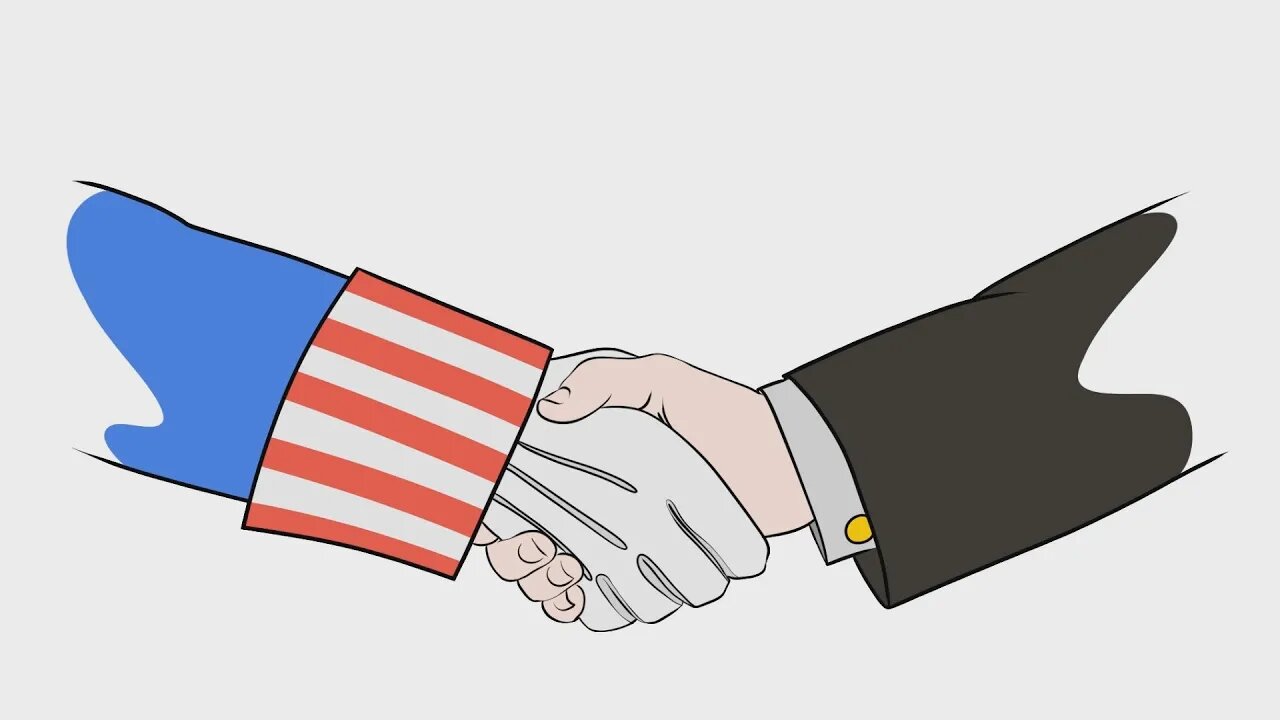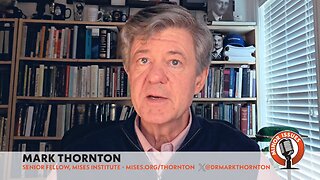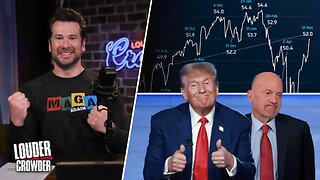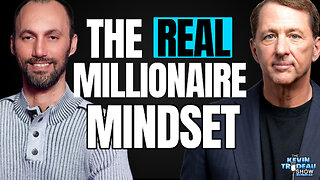Premium Only Content

Nationalism
“I would welcome almost any war,” Teddy Roosevelt confided to a friend in 1897, “for I think this country needs one.”
Roosevelt believed Americans were becoming spoiled by peace and prosperity. “No triumph of peace is quite so great as the supreme triumphs of war,” he insisted. “The fight well fought [and] death bravely met count for more in building a fine type of temper in a nation than prosperity in commerce.”
Roosevelt celebrated the conquest of the West, but victory was bittersweet. Frontier warfare had shaped the national character, and Roosevelt worried it would be destroyed by modern luxuries. But when he read Alfred Mahan’s The Influence of Sea Power upon History, Roosevelt found a new frontier.
Mahan’s book argued that national wealth depended on overseas trade. Great nations, therefore, required vast navies with overseas supply stations. The US had traditionally docked ships in friendly ports, but in the event of war, the country would need to control strategic locations overseas.
When Spain’s colonies began revolting, Roosevelt convinced President William McKinley to station the USS Maine near Cuba to protect American interests. After an explosion left 268 sailors dead, Roosevelt blamed Spanish treachery. Sensationalist newspapers spread his narrative, spurring support for war until McKinley relented. The four-month conflict ended with America acquiring the Spain’s colonies, of Guam, Puerto Rico, and the Philippines, as spoils of victory.
The Spanish-American War was a contest between two empires and began with colonial uprisings. Yet in a way, all parties fought for the same cause.
The nineteenth century was shaped by the emergence of a new ideology known as nationalism. A nation is a group of people with a common cultural identity, usually based on shared language, beliefs, and heritage. Nationalism contends that the nation should correspond with the state—the centralized political organization of territory.
Nation-states began to gradually replace empires as colonies demanded independence. But political leaders often view independence movements as threats to national unity. Cuban and Spanish nationalism clashed over Cuban secession.
A similar sentiment motivated America’s involvement in the war. Proponents saw its potential in uniting a nation that had remained divided since the Civil War. They invoked cherished American values, promising liberty for Spain’s colonies—a promise they quickly broke.
Just as modern US maps reserve the left corner for Alaska and Hawaii, early twentieth-century maps depicted America’s overseas territories, such as Cuba, the Philippines, and Puerto Rico. One book of maps claimed, “The term ‘United States’ has ceased to be an accurate description of the countries over which the Stars and Stripes float. It applies merely to the central dominating body, the seat of empire.”
The Spanish-American War made the US an empire by any definition. And just as medieval empires allied with the corporate church, America’s national empire would ally with modern business corporations.
______________________________________
Want to learn more?
For more animated content, check out Economics for Beginners at https://BeginEconomics.org.
Check out the latest Mises Wire articles on foreign policy and war: https://mises.org/topics/war-and-foreign-policy
Anatomy of the State by Murray Rothbard is a great mini-book on the true nature of the state: https://mises.org/anatomy
The Betrayal of the American Right by Murray Rothbard focuses on the history of the modern conservative movement, and the role it played in aggressively escalating America's foreign policy in the 20th century: https://mises.org/betrayal
Wall Street, Banks, and American Foreign Policy by Murray Rothbard is a fiery monograph that employs "power elite" analysis to understand the relationship between money, power, and war: https://mises.org/library/wall-street-banks-and-american-foreign-policy-0
A Century of War: Lincoln, Wilson and Roosevelt by John V. Denson is an extensive look at how the twentieth century became the bloodiest in all history: https://mises.org/library/century-war-lincoln-wilson-and-roosevelt-0
A Foreign Policy of Freedom by Ron Paul offers a positive view for an American foreign policy would look like if it stayed true to its founding principles: https://mises.org/library/foreign-policy-freedom
-
 12:12
12:12
Mises Institute
1 month ago $0.07 earnedThe Silver Lining | Mark Thornton
2731 -
 LIVE
LIVE
Simply Bitcoin
1 hour ago$1T Bank CONFIRMS $1M Bitcoin Is Closer Than You Think!! | EP 1244
261 watching -
 1:49:46
1:49:46
Steven Crowder
4 hours ago🔴Trump's Economy Wins Pile Up And The Left Can't Stand It
308K137 -
 18:35
18:35
Scammer Payback
7 days agoWe Found their Scam Call Center...Let's Tell Them
1.85K13 -
 LIVE
LIVE
Rebel News
48 minutes agoCarney & cabinet ministers speak, CBC mocks Poilievre, Canadians on two-party system | Rebel Roundup
612 watching -
 53:08
53:08
The Kevin Trudeau Show Limitless
3 hours agoOne-Man Shark Tank Reveals His Secret To Massive Money Success
741 -
 49:01
49:01
The Rubin Report
2 hours agoJoe Biden Quickly Regrets Letting ‘The View’ Interview Him
21K25 -
 DVR
DVR
Benny Johnson
3 hours ago🚨Trump Calls Surprise LIVE Press Conference Right Now! Welcomed Like King to Qatar, Camel Motorcade
47.5K50 -
 LIVE
LIVE
The Shannon Joy Show
3 hours ago🔥🔥Trump Channels Obama Era Policies in the Middle East While Radical Islamization Threatens Human Rights in America and Across the Globe- With Special Guest Aynaz Anni Cyrus! 🔥🔥
222 watching -

Grant Stinchfield
1 hour agoDemocrats Deceitful Denial of White Christian Farmers Being Hunted in South Africa!
4671